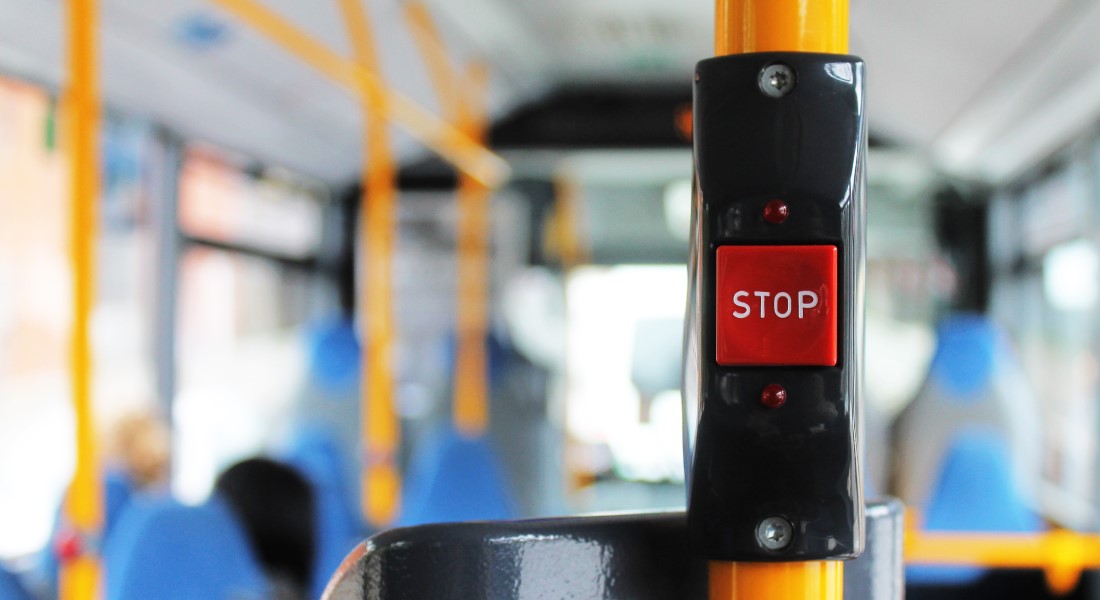Five types of passengers: How we respond to fines on the bus
As passengers we respond very differently when caught without a valid ticket on the bus. Using video analysis, researchers have identified five typical patterns of reaction – from the apologetic to the more defensive types, who may respond aggressively. The study will help prevent conflicts.

The problem is the same – no ticket – but reactions are diverse when the ticket inspector meets a passenger without a valid ticket and consequently issues a fine.
Based on 40 videos recorded with body-worn cameras from the ticket inspectors’ uniforms, researchers have made an in-depth analysis of passengers’ patterns of reaction and categorised them into five types.
Patterns of reaction are ranked according to how defensively the individual passenger reacts to the fine, and they range far: from the honest passenger who admits to having made a mistake to the wronged or superior passenger who feels unjustly treated, challenges the inspector or ‘knows best’ (see table below).
Five passenger reactions in ticket fining events
| Type of reaction | Typical characteristics |
|---|---|
| The innocent passenger | Shows good intentions and may have a good excuse |
| The honest passenger | Wishes to appear as a ’good citizen’ |
| The wronged passenger | Feels like a victim, who is unjustly treated |
| The defiant passenger | Does not seem to care and not afraid of authorities |
| The superior passenger | Wants to control things and ’knows best’ |
Many passengers do not intend to act stupidly or to make life difficult for someone who is just trying to do his or her job.
Perhaps the study can make us more aware of our own behaviour – even when we are frustrated about getting a fine.
The study clearly has a preventive focus, explains PhD Fellow Camilla Bank Friis from the Department of Sociology. She conducted the study together with Professor Marie Rosenkrantz Lindegaard from The Netherlands Institute for Crime and Law Enforcement.
“We quite simply wanted to learn how people respond when presented with a fine – and how their reactions are tied to cases where the passenger becomes aggressive. This gives the study a preventive focus, as it should help ticket inspectors identify specific patterns of reaction and avoid situations that escalate,” says Bank Friis.
Escalation to aggression
Whereas the ‘innocent’ or ‘honest’ passenger will typically try to explain that the missing ticket is a result of a misunderstanding or point out that he is a good citizen who normally buys a ticket, the ‘defiant’ or ‘superior’ passenger will react much more defensively.
This may result in an actual confrontation, where the passenger refuses to show his ID, yells at or, at worst, pushes, kicks or threatens the ticket inspector.
The study does not say how often this happens, though. The 40 analysed incidents were chosen because they span all types of confrontations, from the minor conflicts to hard confrontations, and not on account of how often passengers react in a specific way.
However, in 26 out of the 40 studied episodes, the passenger caused the conflict to escalate. Moreover, some passengers changed types in the process – from the innocent to the more defiant type. A shift seen among aggressive passengers in particular.
We can learn from aggressive confrontations
According to Camilla Bank Friis, this demonstrates the dynamic often at play during ticket inspection or other types of rule enforcement.
Here the video footage has made it possible to analyse in detail how the situation develops over time.
“Past studies have looked at citizens who respond with disrespect when faced with the police, for example, but our study shows that especially in aggressive confrontations passengers change types; that is, their line of reasoning changes,” Bank Friis explains.
“I was surprised to see that, and we can teach ticket inspectors and other authorities to adjust to that. We therefore recommend introducing conflict training programmes that take into account the different types and their risks. Inspectors should be aware that passengers may draw on very different arguments and be ready to adjust their conflict management behaviour accordingly.”
She also hopes the study will make more people reflect on their own behaviour.
“Of course, many passengers do not intend to act stupidly or to make life difficult for someone who is just trying to do his or her job. Perhaps the study can make us more aware of our own behaviour – even when we are frustrated about getting a fine.”
Contact
Camilla Bank Friis
PhD Fellow
Department of Sociology
Mail: cbf@soc.ku.dk
Telephone: 35 32 66 32
Professor Marie Rosenkrantz Lindegaard
Senior Researcher
Mail: MRLindegaard@nscr.nl
Telephone: +31 (0)20 598 5388
